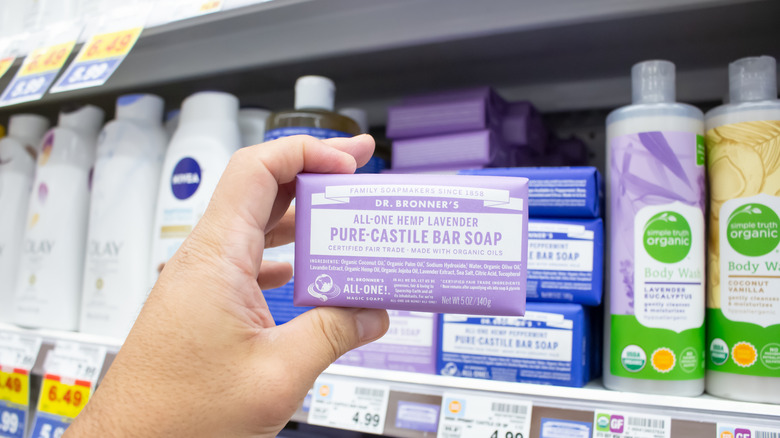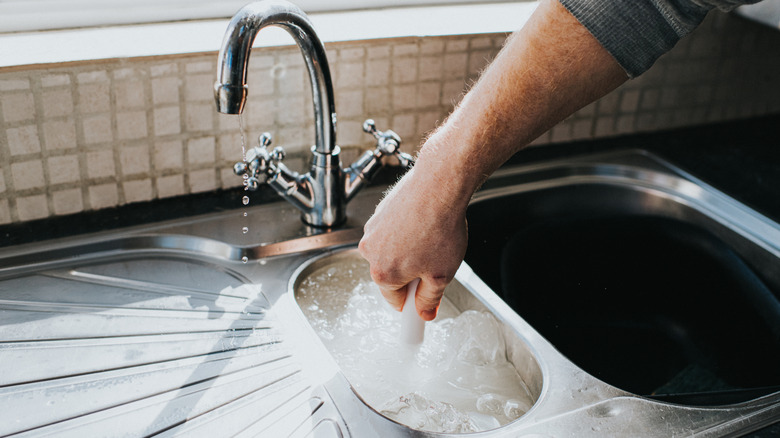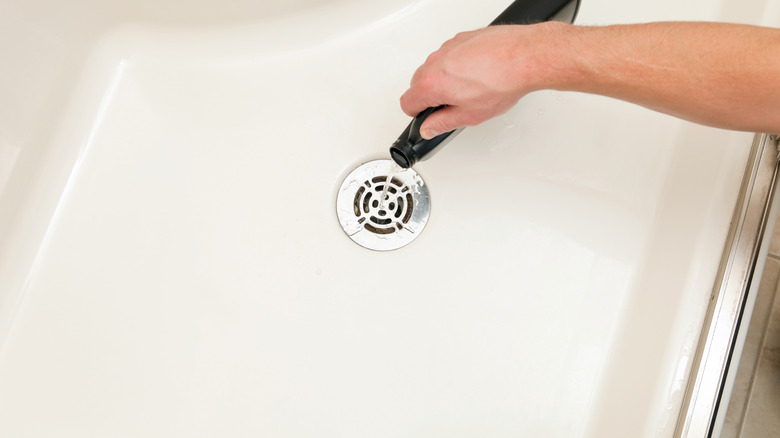Can Castile Soap Clog Your Pipes?
Consumers are increasingly looking for "green" products, and soaps are no exception. Castile soap is an example of a type of personal care product that is often marketed as safer for both you and the environment. While made with all-natural ingredients, this doesn't mean castile soap is completely risk-free. Some anecdotal reports have even suggested that castile soap might clog pipes, which could understandably make you think twice before using castile soap. However, it turns out that the problem may not be castile soap at all, but rather its reaction with hard water in your home's pipes.
Unlike most commercial soaps that contain a combination of animal fats, fragrances, and synthetic ingredients, castile soap is made with vegetable oils. Olive oil is perhaps the most traditionally used ingredient in the soap, as the product originates from the Mediterranean region. Some brand-name products may contain other plant-based oils, such as those made from hemp, coconut, and palm. Castile soap is sometimes promoted as a multi-use product, as it may be used in both home cleaning and personal care. To that end, castile soap could be kept on hand for cleaning your leather furniture as well. It's even said to be biodegradable, a feature which might make you automatically assume that it's safe for your plumbing, too. Nevertheless, castile soap can become problematic in some instances, leading to clogged pipes. It's worth keeping in mind that this issue is not exclusive to castile soap, though, and it can be a problem with any non-synthetic based soap you put down the drain.
How castile soap might lead to plumbing issues
Some people have reported plumbing issues after using castile soap, such as clogged drains. This can certainly be a discouraging experience, as you might rely on natural products as ways to reduce harm to both your health and your home, but the problem may not be castile soap alone. Castile soap is known to interact with hard water minerals, which can then lead to soap scum buildup. It can also react with other commonly used natural ingredients, such as white vinegar and lemon juice, so you shouldn't mix these when using the soap as a cleaning agent.
As a rule of thumb, if you notice a white or gray-colored buildup around any sinks or tubs in your home, chances are there's castile soap scum buildup in your drains, too. Before resorting to chemical products, consider trying all-natural ingredients to clear your clogged drain first.
Treating and preventing drain issues from castile soap
The prospect of clogged pipes can be concerning, but this doesn't necessarily mean you have to steer clear of castile soap altogether. If you do have hard water, you may need to dilute the soap with water at a 1 to 3 ratio before you use it to clean your home. You'll also want to regularly clean the pipes in your home to prevent them from getting clogged with castile soap scum and other products. This is especially the case in your bathroom sinks, showers, and tubs if you use castile soap as a personal care product. Consider tips for preventing hard water stains from building up in the sink as part of your castile soap scum action plan.
As a final thought, even if you do use castile soap for personal care and home cleaning purposes, know that there are also reports that the product has led to some letdowns when compared with other types of soaps and detergents. Rather than relying on castile soap as an all-purpose cleaner, you may need to try the product with realistic expectations (and proper dilution).


